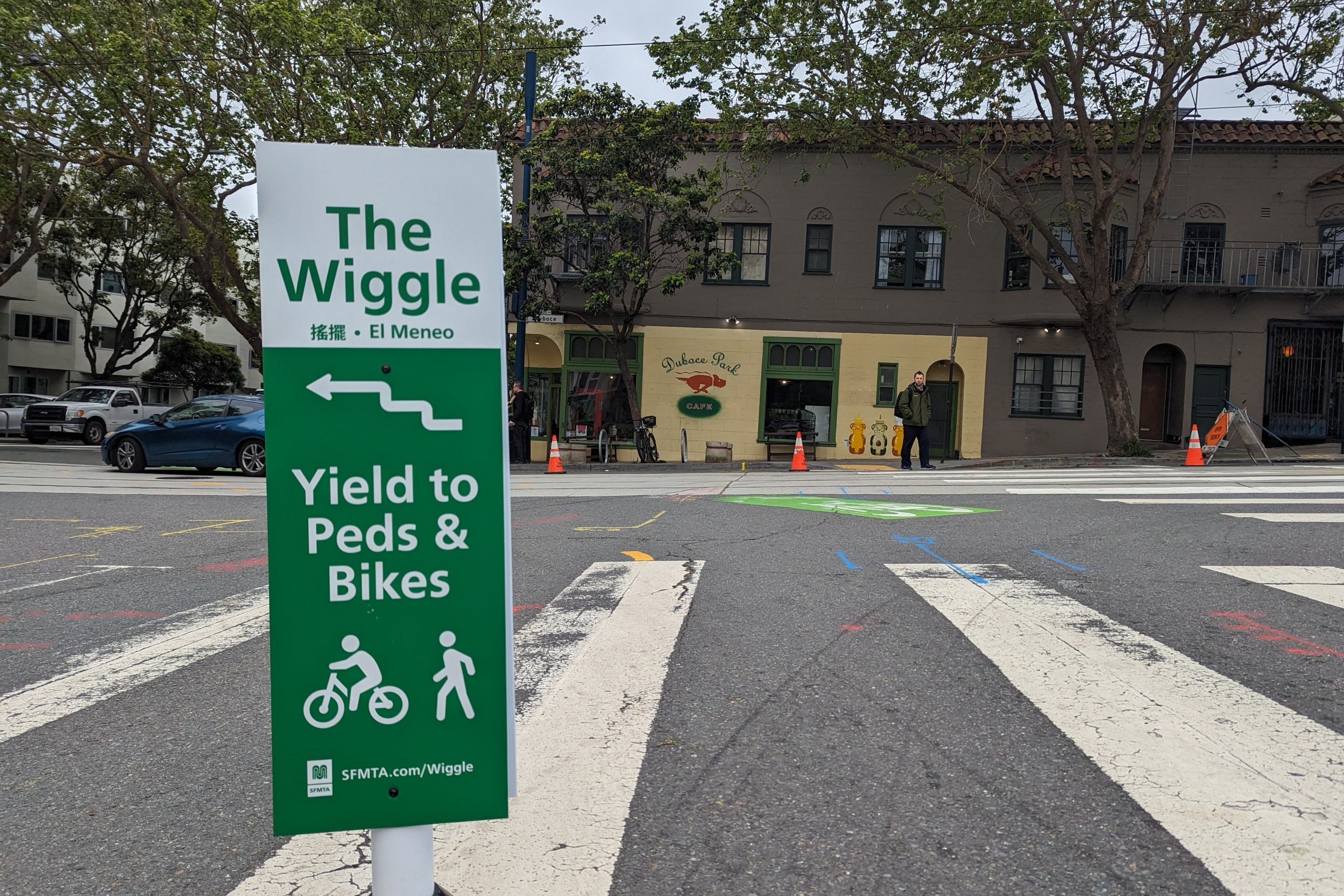The Rise of the Longtail Bicycle
3:26 PM PDT on March 10, 2009

Xtracycle founder Ross Evans is only tangentially running a business in Oakland. Inventor, entrepreneur, bicycle tinkerer, activist, and international transportation development consultant, Evans has a mission to transform mobility around the world with his longtail bicycle design, all the while creating communities and culture that are less reliant on the car. And what's more refreshing, he wants to do it by having fun, not by provoking shame.
The original Xtracycle for market was the Free Radical longtail conversion kit, which lengthens the frame of a standard bicycle by about 15 inches. It includes a vertical frame around the rear wheel with a shelf that resembles a skateboard deck on top along and panniers on the side for extra hauling capacity. There are numerous add-ons, including wider side panels and a deck that allows you to bolt on bike seats for babies. The company is also selling an extended full-frame longtail bicycle, The Radish, which was modeled on the premise that it would be used by people shopping for food at farmers' markets.
As evidenced by the community blog, the Flickr stream, and the forums page on their website, the longtail bicycle is used for hauling groceries and building materials, surfboards and kayaks, shuttling children to and from school, excursions and long trips, and bicycle powered blenders (they sell the attachment for smoothie conversions). There are even several bands that tour by Xtracycle, including the Ginger Ninjas (featuring Evans' founding partner) and the blinged out ride belonging to DJ Fossil Fool.
"We make a bike product right now, but what's going on is that people are seeking something bigger, whether it's health, community, or engagement with others," said Evans. "People want to get out of the boxes and connect with life. The number one complaint we get is 'I wish I bought it sooner.'"
 The morning commute got a lot sweeter
The morning commute got a lot sweeterThough Evans patented the early design of the Free Radical, he considers the current technology to be open source. On the Longtail Tech wiki, the company explains that it wants to ensure the compatibility of parts, but it won't charge for the design. "We only ask that makers
conform to a certain set of criteria, so that customers can be assured
that everything will work well together."
"It's just like Firefox," said Evans "If you want to build on this platform, you need to follow these language rules and it will work with our stuff." He explained that manufacturers like Kona and Surly make a bike that works with their technology, using Xtracyle innovations like sockets at nose positions, but they don't pay for the right.
"To have a small piece of a big pie is far more interesting. In the
case of Surly, they access people that we don't access, draw people in
and then some of those people end up buying a Big Dummy and some end up buying a Free Radical, and some end up not getting anything but get stoked about it and tell their friends."
Evans attended Stanford from 1993-99 when the internet bubble was
expanding, but after an internship at IDEO, he didn't want to be part
of the dot com business world. In 1995, he got a grant to go to
Nicaragua to build a bicycle trailer, but realized when he got down
there that trailers were ungainly and rarely fit on the foot paths that
were the most common routes for hauling materials. After some
experimentation, he came up with the prototype of the Free Radical, an
inline, affordable extension to a standard bicycle frame to make room
for hauling large market baskets and loads up to 300 pounds.
After
spending time skill sharing in Central America and Africa and
experimenting with a non-profit model, he decided the traditional
business model would give him greater leverage and flexibility.
Evans said the company broke even last year and realized more than $1 million in revenue, but the matter of numbers seemed a bother to him. Yes, he said, they wanted to sell great products, grow margins, and build a company in the traditional business sense, but providing a living for his employees was more important than whether or not they were going to be a twenty-million dollar company in five or ten years, or ever.
Evans is a long-time board member of the World Bike Foundation,
an international network of bicycle designers and development
professionals that provide cargo bike transportation and
income-generating opportunities for the world’s poor. Recently
Xtracycle started working with UN Habitat to pilot bike-hauling
programs, one of which is developing a mechanism to haul water by
longtail bicycle into a large slum in Nairobi and haul trash out.
Xtracycle was also recently contacted by the Clinton Foundation and was
asked to present this year at TED, where Evans said he gave away Xtracycles to "well-heeled individuals who got it immediately."
"We're lucky to have been hewn from a period of great social and
business upheaval where some new models emerged that we're leveraging, from native, open source, social media,
community driven movements, etc.,' said Evans.
When asked how he would define success, he said he wants longtail bicycles to be as common as mountain bikes.
"We want to count people, not dollars."
Photos: Xtracycle
Stay in touch
Sign up for our free newsletter
More from Streetsblog San Francisco
Independent Safety Advocates Beef up the Wiggle
Signs and soft-hit posts installed by advocates make the Wiggle bike route calmer and safer for cyclists and pedestrians




